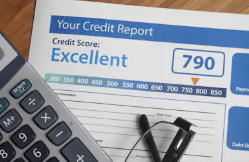There is no secret formula to building a strong credit score, but there are some guidelines that can help.
- Pay your loans on time, every time. One way to make sure your payments are on time is to set up automatic payments, or set up electronic reminders. If you’ve missed payments, get current and stay current.
- Don’t get close to your credit limit. Credit scoring models look at how close you are to being “maxed out,” so try to keep your balances low compared to your total credit limit. If you close some credit card accounts and put most or all of your credit card balances onto one card, it may hurt your credit score if this means that you are using a high percentage of your total credit limit. Experts advise keeping your use of credit at no more than 30 percent of your total credit limit. You don’t need to revolve on credit cards to get a good score. Paying off the balance each month helps get you the best scores.
- A long credit history will help your score. Credit scores are based on experience over time. The more experience your credit report shows with paying your loans on time, the more information there is to determine whether you are a good credit recipient.
- Only apply for credit that you need. Credit scoring formulas look at your recent credit activity as a signal of your need for credit. If you apply for a lot of credit over a short period of time, it may appear to lenders that your economic circumstances have changed negatively.
- Fact-check your credit reports. If you spot suspected errors, dispute them. If you have old credit card accounts you are not using, keep an eye on them to make sure that an identity thief is not using them.
Khanya Corporation is here to help you meet your credit score goals. Our credit restore services can you help you work to remove the inaccurate or unfair negative items listed on your credit report.
Visit us online @: http://khanyacorporation.com/credit-restore.html
Call us to get started: 414.477.0855

Comments
Post a Comment